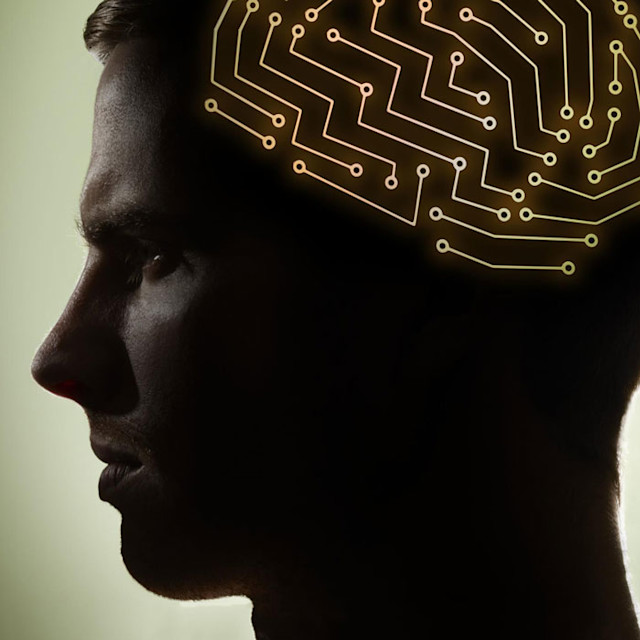How optimizing your mind can benefit your performance in and out of the gym
Health and science journalist Max Lugavere always assumed that dementia was an older person’s disease. So when his mom was diagnosed with Parkinson’s and Alzheimer’s at 58, it came as a huge shock. “Since no one else in my family had dementia, I was dumbfounded by my mom’s diagnosis,” he says. “My grandmothers were sharp well into their 90s, so I thought, how could this happen to someone who is nearly four decades younger?” He shuttled her from one neurology appointment to the next, meeting with well-respected doctors in some of the top hospitals across the country. But much to his surprise, not one of these brain experts could explain what might have brought on her conditions or if anything could have been done to prevent them.
Frustrated by the lack of information, he packed up his life in LA, moved back to New York City to be closer to his mom, and “became obsessed” with brain health research, learning everything he could about what, if anything, could actually change how the brain works and prevent it from becoming sick. “I found out just how important one’s lifestyle is for brain health, and the more I started adhering to the research, the better my brain starting working,” he says. Lugavere eventually compiled all his findings and notes into a new book, Genius Foods, coauthored with Paul Grewal, MD, an internal medicine specialist in New York City.
Here are the most important things he learned as he sleuthed around for answers on how to keep the body’s central computer sharp and running efficiently for decades.
1. Your brain is what you eat.
The food you put on your plate can essentially determine your brain’s processing speed: your decision-making, your attention span, and how clearly you think. As he sifted through the research, Lugavere realized that many of the same foods that were bad for your heart, your waistline, or your gut could also impact your brain. “Just a few years ago, I had grains with almost every meal,” he says. “It would be a bagel for breakfast, a sandwich for lunch, or some whole wheat pasta for dinner. I had also loaded up on unhealthy fats. Growing up we had margarine and corn oil in the house, foods that would win the heart of any dietician back then.”
At the time, he didn’t make the connection that these things were playing a role in the fact that he constantly felt foggy, had zero energy, and was really unfocused. “What I do know is that once I changed my diet, skipped the grains, and began incorporating foods like avocado, eggs, wild salmon, and darky leafy greens, which together have a synergistic and brain-boosting array of fats and micronutrients, my cognitive performance felt like it shifted into a higher gear,” he adds.
2. Good stress can actually help the brain.
Chronic stress—late nights at the office, unhealthy relationships—can negatively impact health. But good stress that comes from activities like exercise, intermittent fasting, and saunas can boost the brain. “Researchers in Finland recently found that people who use saunas several times a week had a lower risk of dementia and Alzheimer’s,” says Lugavere. “It’s thought that saunas activate heat shock proteins which act like scaffolding to other proteins in the body and prevent them from misfolding, which is a problem in Alzheimer’s.”
3. Sunshine is essential.
The sun is something that many doctors and dermatologists tell people to avoid, but Lugavere found medical research that suggested that short bursts may actually be a powerful health tool. One meta analysis found that low levels of vitamin D could contribute to the development of dementia. “For brain health, you want to prioritize getting good, quality sunlight every day,” Lugavere says. “Aside from helping your body create vitamin D which defends your cells from aging, sunlight helps boost mood, executive function, and reduce stress hormones.”
4. Millennials should prioritize brain health, too.
One of the most jarring things that Lugavere learned is that brain diseases, like most conditions, don’t strike out of the blue. “I was blown away when I found out that dementia begins in the brain 30 to 40 years before the first symptoms,” he says. “If you think about it, it’s like a heart attack. The dysfunction didn’t begin in your vasculature the night before; it’s likely that it took years of bad habits to bring it on.”
Instead of being just a scary statistic, for Lugavere, this information is the perfect hook to get people in their 20s and 30s interested in brain health. Lugavere thinks Millennials can consider brain health in terms of optimizing their performance—now and in the future. “You can look at your diet and lifestyle as ways to help you think better, pay attention, and make better decisions.”
